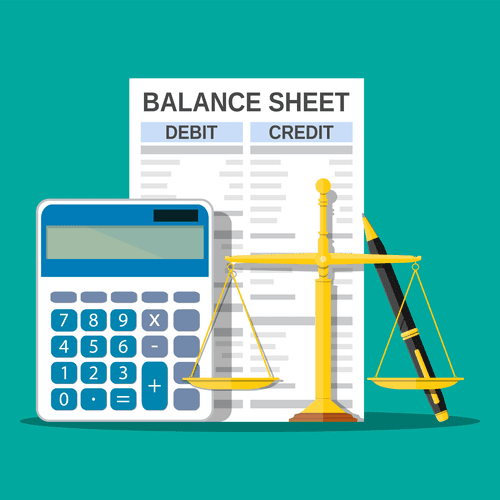
Because this isn’t a one-time project, your client has to believe that their monthly investment will be warranted. The perfect time to offer a consulting retainer is following a successful consulting project. Whether you’re receiving $1000 a month or $3000 a month or $10,000 a month, the work that you’re doing https://www.bookstime.com/ on that monthly basis is what you’re getting paid for. Having a relationship with your client that is based on trust is critical to make the retainer work as a consultant. Before we actually get into the retainers and what they mean and how to use them, let’s actually explore what consulting retainers are.
What Are the Benefits of Retainers?
One popular option is a flat fee, where the service provider charges a specific amount for a defined service, offering predictability without the need for a retainer account. Another model is hourly billing, where clients are invoiced based on the actual hours of service consumed. While retainer fees offer several benefits, there are potential pitfalls to be wary of. For clients, there’s a risk of paying for services they may not fully utilize. There might also be issues related to the refund of the unused portion, especially if the service provider or lawyer may be unwilling or unable to return it. General retainers are the traditional type of retainers where a lawyer agrees to handle a case or future issues that arise for a client.
- A retainer also sets out the exact duties of the lawyer and client so that all parties to the agreement have clear expectations regarding services rendered.
- The “feast-or-famine” — or consulting roller-coaster — are two cycles common to the consultant in the early and mid stages of their business.
- The key difference however is that your client isn’t paying you for specific deliverables and work that you’re going to be providing them with.
- The first option is to enter into a contingency fee agreement with the client.
What is a retainer fee agreement?

Don’t be fooled by a nice piece of paper with lots of big numbers in it. Back in my early years, I once took on an equity deal with a private company. Sure, the rewards can be enormous — but they can also drop to $0 and be worthless.

Consulting for Equity

And, you may be required to pay a general retainer if a firm is highly specialized or skilled and is in demand. When you pay a security retainer, the money goes into a trust or an escrow account (this is sometimes called an IOLTA account, short for “interest on lawyer trust’ account). The money earns interest, but neither you nor your lawyer get the interest. The interest usually goes into a state charitable fund to pay for legal services for those who cannot afford them. Sometimes, the lawyer gets paid as per the achievements he has accomplished. Moreover, an attorney can only demand fees from the client after finishing the allocated job and providing an invoice to the client.

Private Equity Professionals
They are also beneficial for your client because you have the time to focus on doing your best work for them — not spending your valuable energy grinding to find that next project. You have to “hustle” and do nothing but promote yourself so that you can land your next client and begin working on a project again. The “feast-or-famine” — or consulting roller-coaster — are two cycles common to the consultant in the early and mid stages of their business. One of the biggest challenges you’ll face in your consulting business is creating a stable income.
Grow Your Consulting Business
- For consultants or agencies, it ensures financial stability, as they receive payments upfront.
- If you only spend two hours on the matter in the first month, you reduce the retainer by $500, making the remaining balance $2,000.
- The retainer fee must be held in a trust account, then drawn out as the professional invoices for the money.
- Check out our coaching program for consultants to get personalized, 1-on-1 help for helping you win consulting retainers and bring in more predictable revenue for your business.
- In contrast, an earned retainer fee is a payment that is paid in advance by a client in order to secure the services of a lawyer that the lawyer earns upon being hired.
We strive to ease the overwhelming idea of costs in clients’ minds and want our clients to fully understand their engagement agreement and the terminology used before they execute their agreements. By helping clients understand what they are entering into in advance, we hope to foster a positive, effective, and beneficial client-attorney relationship from the start. Retainer fees, when managed effectively, can form the backbone of fruitful, long-term collaborations in the financial world. By understanding their intricacies, both professionals and clients can ensure a symbiotic relationship. While regulations governing retainer fees differ across states, they mostly revolve around transparency and fairness. After the financial shakeups caused by events like Brexit, many firms had to revisit their retainer agreements to adapt to the new economic landscape.
thoughts on “2 Types of Consulting Retainers (& How to Use Them Effectively)”
But, your retainer guarantees the lawyer or firm will be there for you if you require their assistance. Earned retainer fees are the portion of the retainer that the lawyer is entitled to after work begins. Earned retainer fees may be granted to the lawyer bit by bit, depending on the number of hours worked.

Specialized Retainers
Thus, litigation matters are usually more costly—so it makes sense to request a higher retainer at the beginning. In an evergreen retainer, the client pays the retainer down-payment and then replenishes the retainer each month based on the amount of work completed. This type of retainer functions as a safety net of sorts, because the retainer itself is never depleted. what is a retainer fee At the end of the matter—if the client has been making payments each month—the client will receive the down payment back. In this article, we explain how a retainer fee works and how it benefits all parties involved. We also give readers an idea of what all retainer fee agreements should contain, as well as the optional clauses that may be included.
